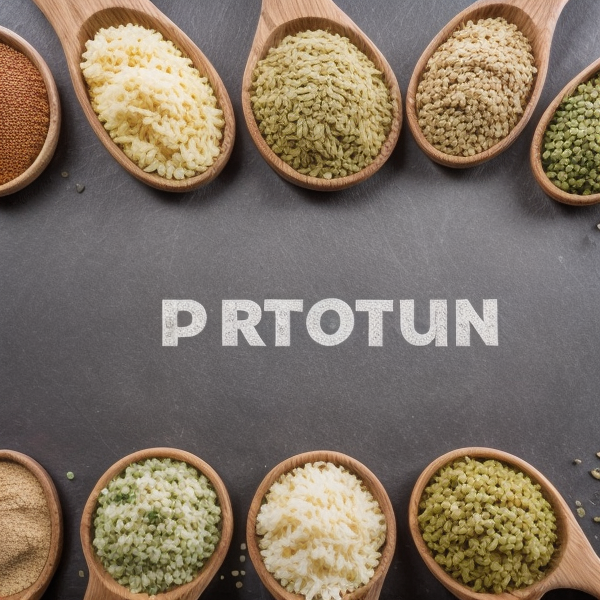Meeting Protein Needs on a Vegan or Vegetarian Diet

Title: Meeting Protein Needs on a Vegan or Vegetarian Diet
Introduction
A well-planned vegan or vegetarian diet can provide all the necessary nutrients, including protein, to maintain good health and meet daily requirements. However, it’s essential to be mindful of your protein intake and ensure that you consume enough throughout the day. In this article, we will discuss how to meet your protein needs while following a plant-based diet.
What is protein and why do we need it?
Proteins are macronutrients made up of amino acids, which are the building blocks of life. They play a crucial role in various bodily functions, such as muscle growth and repair, immune system support, hormone production, and cellular communication. The recommended daily allowance (RDA) for protein varies depending on factors like age, gender, weight, and activity level.
How much protein do vegans and vegetarians need?
The RDA for protein for adults is approximately 0.8 grams per kilogram of body weight per day. For vegans and vegetarians, this amount may be slightly higher due to the lack of animal products in their diets. Aiming for 1 gram of protein per kilogram of body weight per day is generally considered adequate for most people following a plant-based diet.
Plant-based sources of protein
There are many plant-based foods that are rich in protein, including:
1. Legumes (beans, lentils, chickpeas, peas, etc.)
2. Nuts and seeds (almonds, cashews, chia seeds, hemp seeds, pumpkin seeds, sesame seeds, sunflower seeds, etc.)
3. Whole grains (brown rice, quinoa, millet, buckwheat, etc.)
4. Soy products (tofu, tempeh, edamame, soymilk, etc.)
5. Seitan (wheat gluten)
6. Green leafy vegetables (spinach, kale, collard greens, etc.)
7. Fruits (bananas, avocados, berries, etc.)
Combining different plant-based proteins throughout the day can also help ensure that you meet your overall protein needs. For example, pairing legumes with whole grains or nuts and seeds can create a complete protein source.
Tips for meeting protein needs on a vegan or vegetarian diet
1. Plan ahead: Make sure to include a variety of plant-based protein sources at each meal and snack. This will not only help you meet your daily protein goals but also ensure that you’re getting a balanced diet.
2. Keep track of your protein intake: Use a food journal or tracking app to monitor your protein consumption throughout the day. This can help you identify any gaps in your diet and make adjustments as needed.
3. Experiment with new recipes: There are countless delicious and nutritious plant-based protein options available. Try incorporating more of these into your diet by trying new recipes and cooking methods.
4. Consider supplementation: While it’s best to get your nutrients from whole food sources, some people may benefit from protein supplements. Consult with a registered dietitian or healthcare professional before adding any supplements to your routine.
Conclusion
Meeting protein needs on a vegan or vegetarian diet is entirely possible with careful planning and attention to nutritional balance. By incorporating a variety of plant-based protein sources into your diet and monitoring your intake, you can maintain good health and enjoy the many benefits of a plant-based lifestyle.
